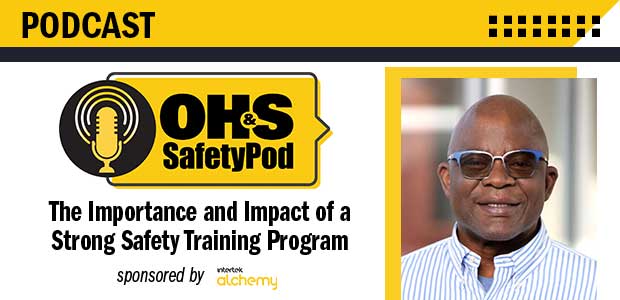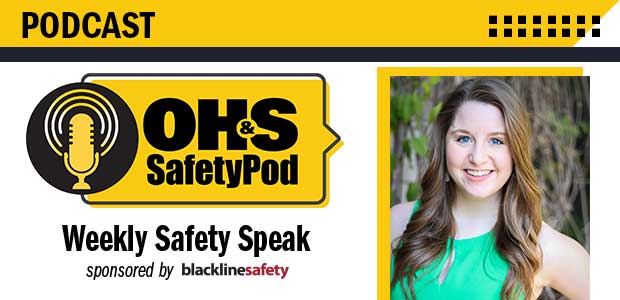Employees that are working in person during the pandemic should be working in offices with adequate ventilation to minimize their risk of infection.

The CDC confirms that wearing a cloth mask can protect individuals from catching the coronavirus, not just those around them.
A CDC report details the increased risk of coronavirus infection that occurs when working in an office as opposed to working remotely.

An assistant professor at the University of Massachusetts Lowell will develop workplace training for America’s 500,000 correctional officers.
The percentage of positive COVID-19 cases in Michigan has reached 7.5%—a significant increase from last week’s 5.5%.

Episode 38
Setting expectations and standards through a strong safety training program is just one of the best ways to create a strong safety culture. In this episode, Editor Sydny Shepard sits down with Earl Johnson, Director of Safety for the Prepared Foods Segment at Tyson Foods, to discuss the impact and importance of implementing a training program that works for leadership and employees.

The antibody treatment is approved for administration in hospitals and other health care facilities.
OSHA compiled data from heavily cited establishments to create two new resources for employers to use during the current pandemic.

In the midst of a surge in coronavirus cases, Pfizer announced that the COVID-19 vaccine it has been working on appears to be 90% effective.

Construction workers are five times more likely than other professions to be hospitalized with COVID-19, says a study by the University of Texas at Austin.
A new peak in COVID-19 hospitalizations was reached on November 5.

Episode 37
In this mini episode of the podcast, Editor Sydny Shepard discusses a new structural guide for fire fighting, the ASSP's new partnership with NECA and how states are dealing with the third wave of COVID-19.
A new 13-chapter document is intended to teach firefighters effective strategies for search, rescue and fire suppression.

The two organizations signed a three-year memorandum of understanding on November 2.

A reported 29 of 600 coronavirus-related deaths in Oregon have a connection to workplace outbreaks.
SaaS solutions can pull SDS information directly from the chemical manufacturer or distributor, keeping your SDS management system compliant.
Occupational health and safety training is an extremely important activity at the workplace.